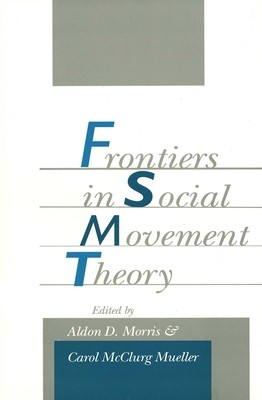
- We will send in 10–14 business days.
- Publisher: Yale University Press
- ISBN-10: 0300054866
- ISBN-13: 9780300054866
- Format: 15.5 x 23.4 x 3 cm, softcover
- Language: English
- SAVE -10% with code: EXTRA
Frontiers in Social Movement Theory (e-book) (used book) | bookbook.eu
Reviews
Description
Social protest movements such as the civil rights movement and the gay rights movement mobilize and sustain themselves in ways that have long been of interest to social scientists. In this book some of the most distinguished scholars in the area of collective action present new theories about this process, fashioning a rich and conceptually sophisticated social psychology of social movements that goes beyond theories currently in use. The book includes sometimes competing, sometimes complementary paradigms by theorists in resource mobilization, conflict, feminism, and collective action and by social psychologists and comparativists. These authors view the social movement actor from a more sociological perspective than do adherents of rational choice theory, and they analyze ways in which structural and cultural determinants influence the actor and generate or inhibit collective action and social change. The authors state that the collective identities and political consciousness of social movement actors are significantly shaped by their race, ethnicity, class, gender, or religion. Social structure--with its disparities in resources and opportunities--helps determine the nature of grievances, resources, and levels of organization. The book not only distinguishes the mobilization processes of consensus movements from those of conflict movements but also helps to explain the linkages between social movements, the state, and societal changes.
EXTRA 10 % discount with code: EXTRA
The promotion ends in 17d.22:18:31
The discount code is valid when purchasing from 10 €. Discounts do not stack.
- Publisher: Yale University Press
- ISBN-10: 0300054866
- ISBN-13: 9780300054866
- Format: 15.5 x 23.4 x 3 cm, softcover
- Language: English English
Social protest movements such as the civil rights movement and the gay rights movement mobilize and sustain themselves in ways that have long been of interest to social scientists. In this book some of the most distinguished scholars in the area of collective action present new theories about this process, fashioning a rich and conceptually sophisticated social psychology of social movements that goes beyond theories currently in use. The book includes sometimes competing, sometimes complementary paradigms by theorists in resource mobilization, conflict, feminism, and collective action and by social psychologists and comparativists. These authors view the social movement actor from a more sociological perspective than do adherents of rational choice theory, and they analyze ways in which structural and cultural determinants influence the actor and generate or inhibit collective action and social change. The authors state that the collective identities and political consciousness of social movement actors are significantly shaped by their race, ethnicity, class, gender, or religion. Social structure--with its disparities in resources and opportunities--helps determine the nature of grievances, resources, and levels of organization. The book not only distinguishes the mobilization processes of consensus movements from those of conflict movements but also helps to explain the linkages between social movements, the state, and societal changes.


Reviews